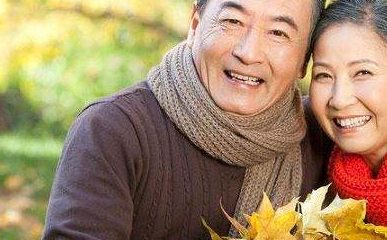As people reach middle and old age, they feel that health is the most important. Obesity is not conducive to health and can bring disease risks. How do middle-aged and elderly people lose weight? The correct method for elderly weight loss is through exercise and dietary weight loss.
1. How to exercise to lose weight in middle age
1. Puppet movements: Exercise the upper arms, waist, and abdomen.
Stand with feet apart, arms flat, elbows slightly bent. Point the left fingers up, right fingers down, and lean the body to the left. Then, raise the right hand while lowering the left hand, tilting the body to the right. Repeat. Duration: 30 seconds.
2. Squatting with knees: Strengthen the back, buttocks, and thighs.
Spread your feet apart, bend your knees, tighten your abdominal and gluteal muscles. Slowly bend your knees and squat down to the lowest point for 2 seconds, then stand back up to the starting position. Repeat 5 times. Total duration: 30 seconds.
3. Bent control: Exercise calf muscles and improve leg flexibility.
Feet apart, legs straight, hands naturally connected to the hips. Keep the back straight, bend forward from the hip joint. Maintain this position from 1 to 15. Then further bend the body and grab the lower leg with both hands. Keep both legs straight, do not hug the knees, and try to touch the ground. Maintain this position from 1 to 10. Total duration: 30 seconds.
2. What to eat to lose weight in middle age?
1. Toast
When it comes to weight loss for the middle-aged and elderly, they can eat toast. Although toasted bread is a common staple for many young professionals, there are various types of toasted bread that can be used in different ways. The best choice for weight loss is whole wheat toast. Whole wheat has high fiber content and low calories.
2. Noodles
Noodles are semi-liquid foods with high water content. Natural foods are easy to create a sense of satiety, can be quickly digested and absorbed by the body, and can be eaten well. White rice, a staple in the East, is mainly white rice, with various rice varieties, low in calories, but brown rice or germ rice is preferred.
3. Buckwheat noodles
Buckwheat noodles are very common in Japan. They are also a type of noodle food. They have a chewy taste and rich nutrition. They can also resist aging and prevent cancer. Oats are rich in fiber and unsaturated fats, can control blood sugar spikes, and the best choice is whole grains, not suitable for long-term cooking.
Dietary principles for middle-aged and elderly
Reduce salt intake
According to survey data, residents with high salt intake have a significantly higher incidence of hypertension and stroke mortality. Eskimos consume only 4 grams of salt per day without any cases of hypertension. The risk of cardiovascular disease is high in middle-aged and elderly people, so salt intake should be reduced. It is generally believed that the daily salt intake for middle-aged and elderly people should be reduced to 5-6 grams. Hypertensive and coronary heart disease patients should limit it to 3 grams or less.
Have enough fiber
Due to the decreased tension of the intestinal wall muscles, the ability of the elderly to move the digestive system decreases, leading to constipation. Foods rich in fiber such as coarse grains, vegetables, fruits, beans, and algae are not only beneficial for bowel movements but also help prevent hyperlipidemia, arteriosclerosis, and diabetes. Therefore, middle-aged and elderly people should pay attention to consuming enough dietary fiber, with a daily intake of fresh vegetables and fruits of 400-500 grams.
Reduce calories, eat more eggs, vegetables, and fruits
As age increases, body tissues shrink, and metabolic rates decrease. Therefore, the calorie consumption of middle-aged and elderly people is much lower than that of young people. If you still consume the same amount of food as in your youth, it will inevitably lead to excess calories, which will not only fail to lose weight but also continue to gain weight. Eat less fat, sugar, and other high-calorie foods.
Middle-aged and elderly people should not pursue the speed of weight loss. Health is the most important thing. It is best to lose weight through diet and exercise, which can not only help in weight loss but also contribute to a healthier body and reduce the risk of diseases in the elderly.


